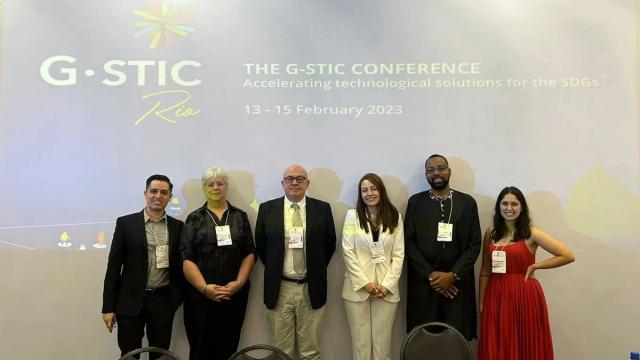SDSN Networks Host Global Solutions Forum in Rio
The pandemic has exacerbated existing global problems, but solutions to many of these challenges already exist all around the world. In many cases, because they are not scaled up globally, local solutions never reach their full potential thereby significantly reducing their SDG achievement impact. In this context, it is more important than ever to shine light on the most transformative and scalable solutions from within SDSN’s unique knowledge network – those that shape the path towards a sustainable future, leaving no one behind.
The 4th edition of the Global Solutions Forum, organized by the Sustainable Development Solutions Network (SDSN), aimed to elevate these solutions to a global audience and bring changemakers together to catalyze progress and inspire one another for a great impact.
The event opened with a speech by Jeffrey Sachs, president of SDSN. He celebrated the organization of such a conference in Rio de Janeiro, Brazil, a city that hosted two key summits for sustainable development, the Rio World Summit, when governments committed to three critical environmental commitments back in 1992, and the Rio+20 Summit in 2012, where the SDGs had their genesis.
Jeffrey Sachs highlighted three key innovations to achieve the SDGs: first, mobilizing real time data (Brazil has been pioneering this for the state of the Amazon); second, advancing digital technologies as the best way to reach certain communities or low-income regions; and third, innovation in finance to enable many effective solutions that are not being deployed due to lack of financing.
The Global Solutions Forum 2023 showcased solutions from SDSN’s national and regional Networks with the goal of creating tangible impact on SDG 3 (Health and Well-being), including initiatives from Canada, Italy, Mexico, Sahel and South Africa. The solutions addressed an array of challenges: from vaccine coverage in poor countries, to strengthening domestic evidence-support systems, to digital tools to improve health systems and health habits in specific groups. John Lavis, from McMaster University (SDSN Canada), shared a solution on how to help decision-makers with the right mix of forms of evidence, and proposed to strengthen evidence-support systems. Gianluca Breghi, from Sclavo Foundation (SDSN Mediterranean), presented a solution on extending vaccines for neglected diseases through multi stakeholder partnerships. Alí Ruiz Coronel, from National Autonomous University of Mexico (SDSN Mexico), shared the experience of the “Open-door clinic”: Healthcare for the homeless. Darelle van Greunen, from Nelson Mandela University (SDSN South Africa), presented the teacher’s Health Promotion Programme: KaziHealth, and Ibrahima Kampo, from SDSN Sahel, presented the MAE BOX: Digital Health Accelerator.
